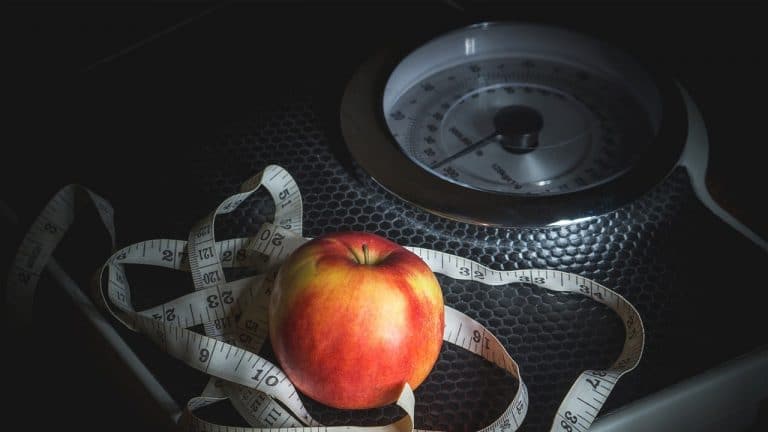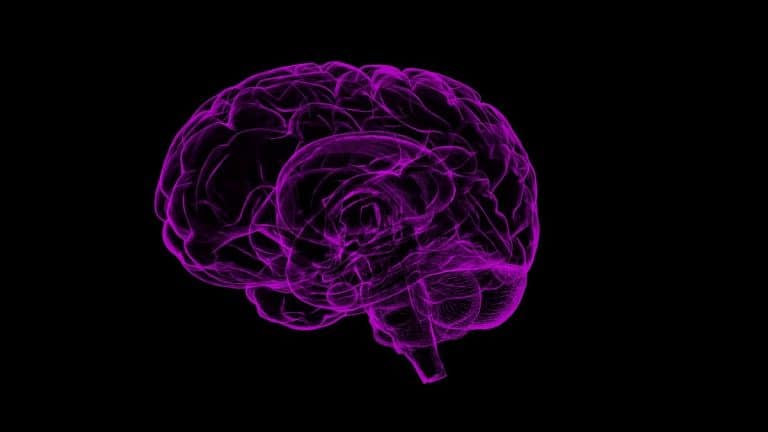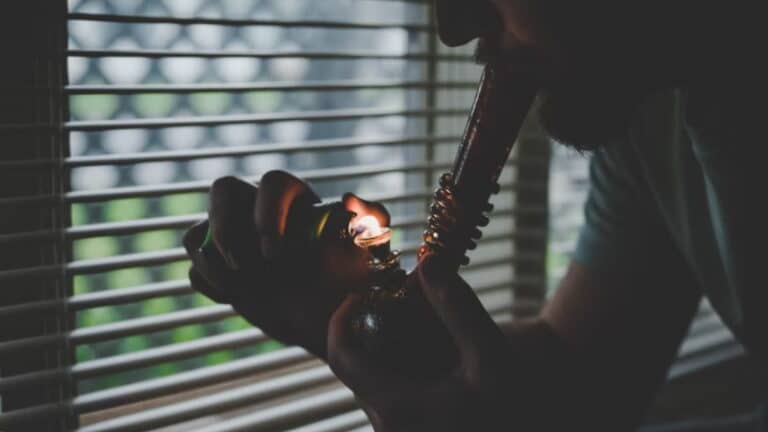CBD Oil for Depression: Research, Benefits, and Dangers

Thousands, perhaps even hundreds of thousands, have started using CBD oil for depression and other mental health disorders (not to mention a number of other symptoms). This natural substance is derived from cannabis, but doesn’t get you high. It’s completely safe and has no severe side effects. People love it because it’s easy to take, fairly inexpensive, isn’t addictive, and highly effective for a number of symptoms.
In this article, we’ll discuss everything you need to know about CBD, depression, and the interaction between the two.
Keep on reading to find out more!
What Is CBD?
CBD is a non-psychoactive compound found naturally in hemp or cannabis plants and is one of 113 identified cannabinoids. In fact, it’s one of the more dominant cannabinoids and accounts for up to 40% of the plant’s extract.
Numerous research and anecdotal evidence on CBD show it can treat symptoms of various mental and physical disorders, such as anxiety, cognition, movement disorders, and pain — hence the surge in popularity!
Depression and the Brain
Can CBD oil help with depression? One way to try and learn these answers is to target the root of the problem and how the brain is involved.
Depression can happen for different reasons — people can be more prone to it due to their genes, or it can result from negative circumstances.
Due to advertisements for medications, some people believe depression occurs because of a serotonin imbalance in the brain. Unfortunately, commercials don’t have to be 100% accurate and like to exaggerate. We do know that low serotonin levels are linked to depression, but this doesn’t always mean it’s a chemical imbalance that you’re born with and will have forever.
Serotonin is believed to help regulate mood, social behavior, appetite, digestion, sleep, memory, and sexual function. It also plays a part in gut function, which is why many people see improvement in their depression and anxiety when they improve their gut health.
Many people discuss using CBD for anxiety and depression because these two symptoms often go hand-in-hand. CBD works just as effectively for anxiety, and it is increasingly being used to treat other mental disorders. These include schizophrenia, PTSD, Alzheimer’s, ADHD, and so on.
These aren’t even the extent of the benefits of CBD — there are many other symptoms and illnesses that it can target.
The Research
Despite there being numerous research concerning CBD, only a handful of scientific studies deal with CBD for depression.
Here’s but to name a few:
- Cannabidiol stimulates effects similar to antidepressants and anxiety medications
- CBD acts as an antidepressant in mice
- The antidepressant effect of Cannabidiol injection into the ventral medial prefrontal cortex in rats
- CBD can reduce stress-related depression.
That said, according to research, CBD is fairly safe to consume. For one, there’s little to no chance of overdose — apart from a few mild side effects (nausea, diarrhea, etc.) — making it preferable to opioids. But, let’s explain it in more detail as most data refers to healthy individuals.
Is CBD Oil Safe & Legal?
Potential dangers of CBD for anxiety and depression depend on a number of factors.
The Farm Bill, passed in 2018, legalized CBD as long as it was derived from hemp and contained 0.03% or less THC.
Still, even though CBD oil is completely safe for healthy individuals, there are some instances where you should take extra precautions if you are suffering from depression.
For example, there could be potential CBD oil drug interactions if you take medications. I.e., you could experience increased adverse effects if you mix CBD with the following drugs:
- Antidepressants (Fluoxetine and Prozac)
- Medications that cause drowsiness (antipsychotics, benzodiazepines)
- Macrolide antibiotics (erythromycin, clarithromycin)
- Heart medications.
Therefore, it’s always recommended to check with your doctor first. Moreover, if the medicine label says not to eat grapefruit, you probably shouldn’t take CBD either.
Is It Safe to Use CBD Oil for Depression During Pregnancy?
Unfortunately, this isn’t recommended. There isn’t enough research on taking CBD while pregnant, so the potential side effects could be harmful to the baby.
How to Take CBD Oil as Depression Treatment
There’s more than one way to consume CBD — oils, tinctures, pills, supplements, edibles, etc. However, when it comes to depression, some methods are better than others.
We’ll list a few of them and explain why in the section below.
Sublingually
Using a CBD tincture of top quality is one of the most common methods. It’s relatively easy to use and has fast bioavailability (in other words, it’s absorbed into the bloodstream faster), making it the perfect CBD application for depression.
In short, the sublingual method entails dropping some CBD oil under the tongue and leaving it there for around 60 seconds (preferably) before swallowing. The effects are felt instantaneously, unlike edibles, which take a few hours to work.
Vaping
Vaping is yet another fantastic way to take CBD oil for depression. This method has the highest bioavailability (40–60%) since the CBD goes straight into the lungs and is absorbed into the blood.
The only downside is that vape products can be more costly than tinctures.
However, although quicker, the effects don’t persist for as long, as is the case with our following method:
Orally
You may have heard about marijuana gummies, but what about CBD gummies? Yup, these are very much a thing and are an extremely popular way of consuming CBD for depression.
Besides gummies, oral consumption encompasses other edibles, supplements, and drinks. And despite the low bioavailability (4–20%), the effects last longer than vaping. Not to mention that edibles are a lot tastier than raw CBD oil!
The only potential downside is the higher price tag associated with edibles compared to regular CBD oil.
What about topical CBD usage? Unfortunately, these don’t work for depression as CBD isn’t absorbed into the bloodstream. You’re better off using them for localized pain and skin issues.
CBD, Depression, and Other Ailments
Depression is hardly ever on its own and it’s usually followed by a couple of other mental or physical health issues. Fortunately, CBD can be of help in such instances too.
Bipolar Disorder and Depression
By using CBD oil for depression and bipolar, you may kill two birds with one stone.
While small doses of THC can improve cognitive functioning in patients suffering from mental disorders — based on a 2010 study — medical professionals still consider this approach controversial.
On the other hand, a 2015 study suggests that CBD has the same antipsychotic properties as conventional bipolar disorder medications.
Weight Loss and Depression
CBD interacts with two receptors in our body, CB1 and CB2. Both play a significant role in our metabolism. On that note, some studies show CBD boosts our metabolism and reduces food intake, so CBD oil for depression and weight loss may also work in unison.
It also promotes the browning of fat cells. Brown fat stores the energy in a smaller space compared to white fat.
Conversely, other studies report CBD can increase appetite. Yet, since we lack more studies on humans, we can’t recommend CBD oil as an effective way to lose weight.
Depression and Anxiety
People suffering from anxiety disorders could benefit from CBD oil, and many studies prove this claim. For example, a 2011 study shows CBD reduces social anxiety disorder symptoms.
A 2015 review implies CBD helps with a generalized anxiety disorder (GAD), panic disorder, obsessive-compulsive disorder, and PTSD.
How to use CBD oil for anxiety? In a similar way one would use it for depression.
Can CBD Oil Cause Depression?
So far, there hasn’t been any conclusive scientific evidence that CBD can worsen depression symptoms. On the contrary, CBD’s antidepressant effects have been highly praised.
One of the possible scenarios could be that the person is expecting fast results with cannabidiol intake and becomes disappointed when the immediate or eventual betterment does not happen. Either way, before using any CBD product on your own, consult with a doctor.
Side note: If you are feeling suicidal, we don’t recommend CBD oil on its own. Please get professional help — the suicide hotline is 1-800-273-8255.
Healing From Depression
If you’re determined to heal from depression, congratulations! You’ve already made a huge step. However, CBD oil for depression isn’t the only way to improve your wellbeing.
Here’s but to name a few:
- Changing your diet and eating healthier foods. Other than the brain, serotonin takes action in the gut as well — hence why improving your gut health can help improve depression and other mental health issues. Probiotics, veggies, and healthy fats are all viable options. You should also stay clear of highly processed foods and animal products (especially milk if you’re lactose intolerant). Scientists have also linked certain foods to treating depression, such as curcumin.
- Talking to your doctor about subscription medications. If CBD for depression isn’t working well enough in your case, you might want to consult a doctor again and start with subscription medication.
- Get involved in physical activity. Physical activity releases neurotrophic proteins in our brain. This helps rebuild the hippocampus, which is reduced by depression.
- Getting professional help (therapy). Depression is all in the brain. Working with an educated professional can help you pinpoint why you’re depressed and how to reprogram your thinking habits.
Conclusion
As you can see, CBD oil can be a great way to reduce your depression symptoms. Although research behind cannabidiol for depression, in particular, is limited, it’s a relatively safe substance overall.
There are plenty of studies, as well as in-depth research, on the general safety and effectiveness of this compound. It’s also legal, inexpensive, and easy to get. With all these benefits, it’s definitely worth consulting your physician about trying CBD out.
FAQs
Does CBD really work for depression and anxiety?
Studies show that CBD offers many benefits for depression, anxiety, cognitive impairment, and stress related to public speaking. Moreover, CBD is safe. You can’t overdose, and its side effects are rare and minor (unless you are on certain medications).
How quickly does CBD work for depression?
The impact of CBD on one’s endocannabinoid system is very individual. Though the effects of CBD are generally felt much faster when it’s vaped or smoked, the amount of time needed for you to feel the improvement regarding depression cannot be precisely estimated.
How much CBD should I take?
If you’ve never taken CBD before, we recommend starting small. Some products are pre-measured (like CBD oil pills and gummies), which makes them easier to take.
CBD oils or tinctures can be more difficult as you need to take a certain number of drops. The package or bottle will almost always give you a recommended dosage, but we always recommend consulting your doctor.
What CBD works best for depression?
First of all, the best oil for depression should contain high levels of CBD and low levels of THC (since THC can cause paranoia). In other words, make sure it’s hemp-derived.
Keep in mind that terpenes can play a significant role in reducing stress, depression, and anxiety, so we’d recommend going for broad or full spectrum CBD oil.
And lastly, high-quality CBD tincture for depression has to have a certificate of analysis (COA). It shouldn’t come from the manufacturer but from a third-party source.
Does CBD oil work as a cure for depression for everybody?
No, we wouldn’t call CBD a “cure” for depression as it doesn’t work the same for everyone. While, according to studies, CBD can decrease the symptoms of depression by altering serotonin levels in our brain, more research is needed to understand how exactly CBD works.
What we know thus far is that high levels of CBD and low levels of THC are most effective for depression.
What is the best CBD oil for depression?
You won’t be able to find any reputable CBD brand on the market selling CBD oil that is meant to treat depression exclusively. The best cannabidiol for depression treatment is the one sold by renowned CBD brands that use organic hem and have transparent third-party lab results.
Can I use CBD products as depression supplements?
CBD oil does have benefits for treating depression. However, if you are already diagnosed, it’s a good idea to first consult your doctor about using CBD oil for depression and other health issues.





